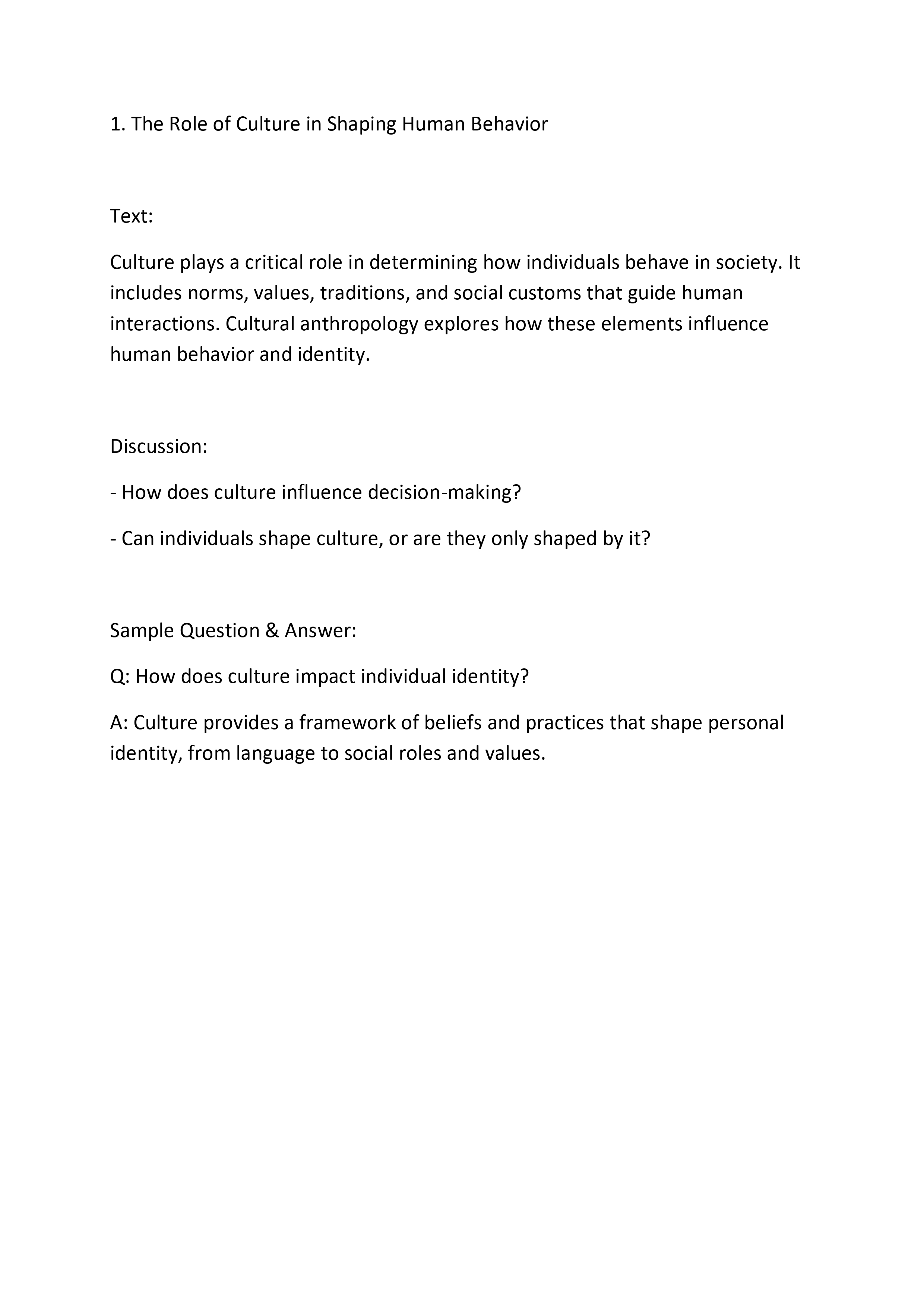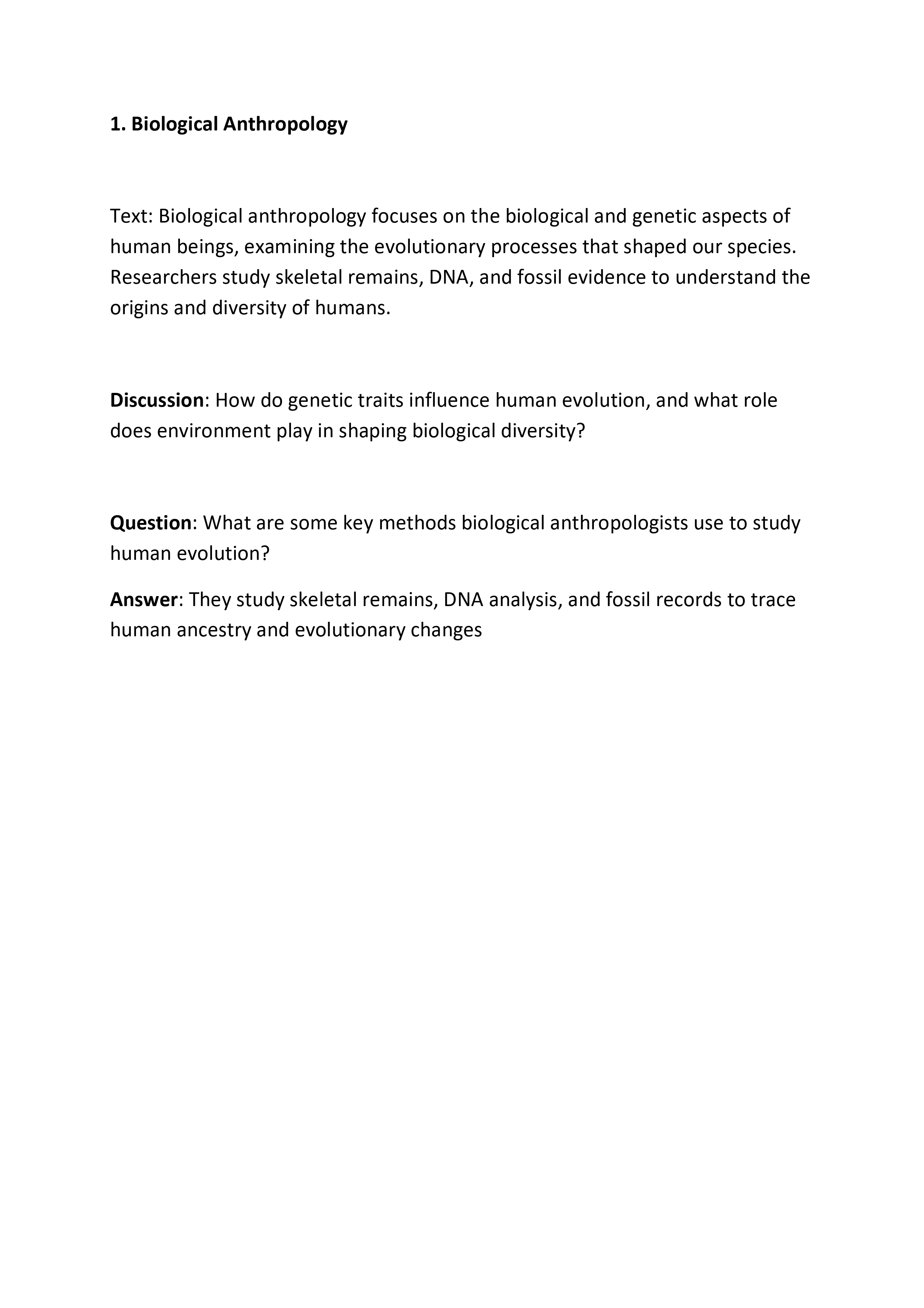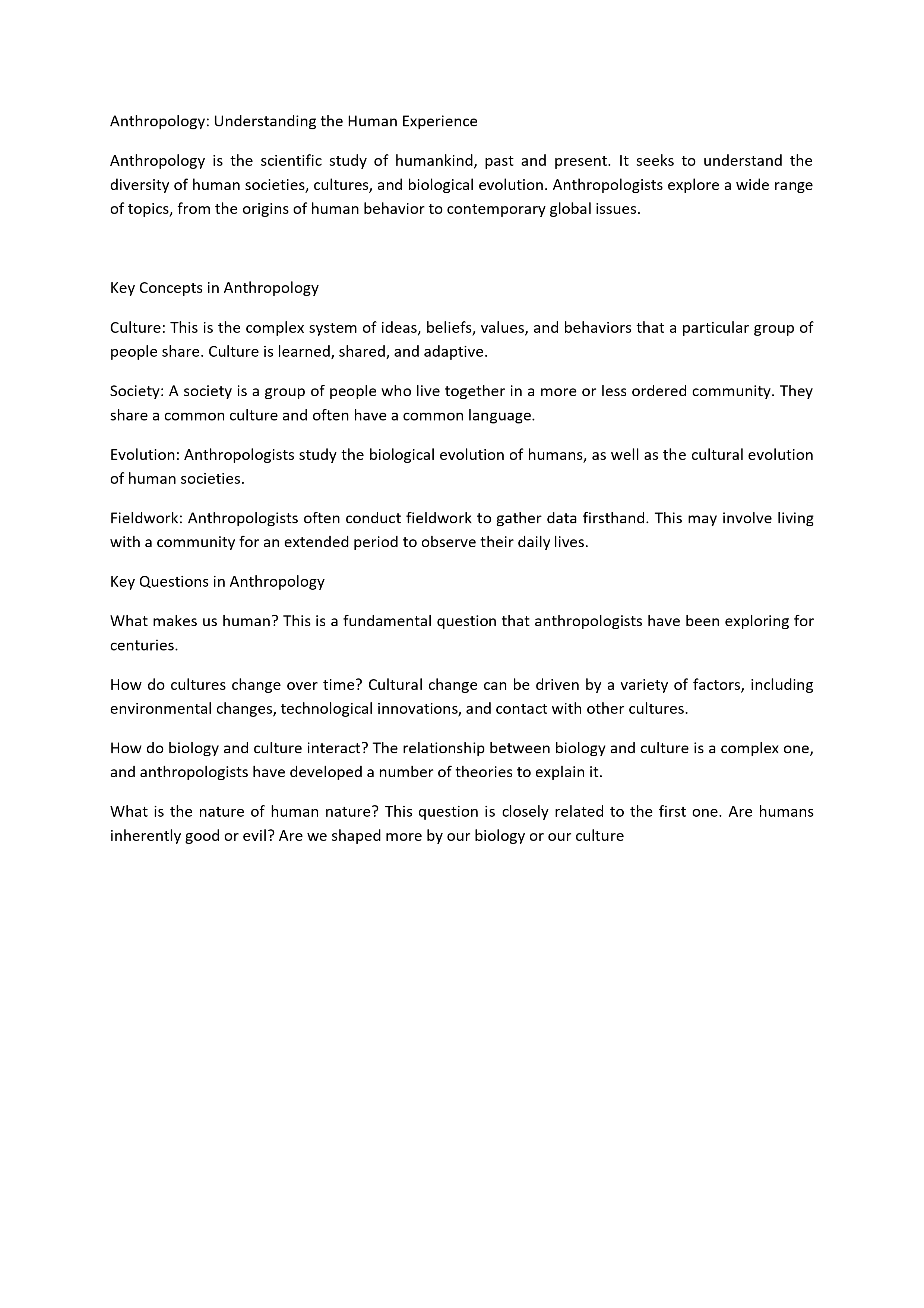Cultural anthropology examines the diverse cultural practices, beliefs, and values of human societies, with an emphasis on understanding how culture shapes human experience and behavior. Cultural anthropologists typically engage in ethnographic fieldwork, involving immersive observation and active participation within the communities they study. This method allows them to gain an in-depth perspective on the cultural dynamics of different societies, highlighting the role of culture in influencing human life and interaction.
- Учитель: Mustapha Tiliouine
Social anthropology focuses on understanding social structures, relationships, and the influence of social norms, institutions, and practices on individual and collective behavior. By examining social networks and hierarchies, social anthropology provides insight into how societies function and maintain order. It differs from cultural anthropology by centering on social organization rather than cultural beliefs, offering a unique lens on societal dynamics and human interaction.
- Учитель: Mustapha Tiliouine
Anthropology is a comprehensive field dedicated to studying humans, encompassing their behaviors, cultures, and societies across time. It includes various subfields such as cultural anthropology, social anthropology, archaeology, and biological anthropology, each focusing on unique dimensions of human life. Together, these subfields offer a holistic understanding of humanity's evolution, diversity, and interconnected experiences. The interdisciplinary approach within anthropology fosters a deeper exploration of human existence, merging perspectives from different domains to enrich our comprehension of both the past and present human experience.
- Учитель: Mustapha Tiliouine

Culture profoundly shapes human behavior by providing a framework of norms, values, traditions, and social customs that guide interactions within society. Cultural anthropology examines these elements and their influence on behavior and identity, highlighting the dynamic relationship between culture and the individual. Key questions in this field explore how culture affects decision-making and whether individuals contribute to shaping culture or are solely molded by it. Through its beliefs, practices, and social roles, culture plays a vital role in forming individual identity and guiding personal and societal behaviors.
- Учитель: Mustapha Tiliouine

Biological anthropology investigates the biological and genetic foundations of humanity by exploring evolutionary processes that have influenced human development. Through the examination of skeletal remains, DNA, and fossil evidence, researchers work to uncover the origins and diversity of the human species. A central focus in this field is understanding the interplay between genetic traits and environmental factors in shaping biological diversity. Key methods in biological anthropology include analyzing skeletal structures, conducting DNA studies, and examining fossil records, all of which contribute to tracing human ancestry and evolutionary adaptations over time.
- Учитель: Mustapha Tiliouine

TD . Anthropology: Understanding the Human Experience
Anthropology is the scientific study of humankind, focusing on both past and present societies, cultures, and biological evolution. It explores diverse topics, from human behavior origins to modern global issues. Key concepts include culture (shared systems of beliefs and behaviors), society (organized communities sharing culture and language), evolution (biological and cultural changes), and fieldwork (collecting firsthand data by living with communities). Anthropology seeks to answer fundamental questions about what makes us human, how cultures evolve, the interaction between biology and culture, and the essence of human nature.
- Учитель: Mustapha Tiliouine

TD
Cultural Diversity: A Tapestry of Humanity
Cultural diversity refers to the variety of human societies and cultures worldwide, encompassing differences in language, religion, ethnicity, values, customs, and lifestyles. It is shaped by geography, history, and social interactions. Recognizing and celebrating cultural diversity fosters tolerance, empathy, and cooperation among different groups, helping to build stronger communities and promote global peace. Examples of cultural diversity include variations in language, food, music, clothing, and beliefs. Promoting cultural diversity can be achieved by learning about different cultures, celebrating cultural events, and challenging stereotypes.
- Учитель: Mustapha Tiliouine
